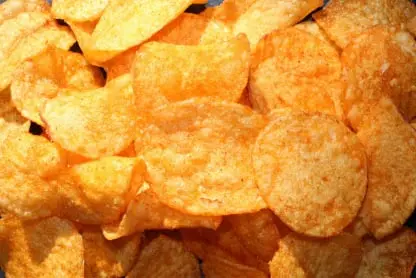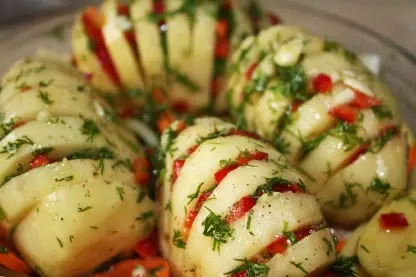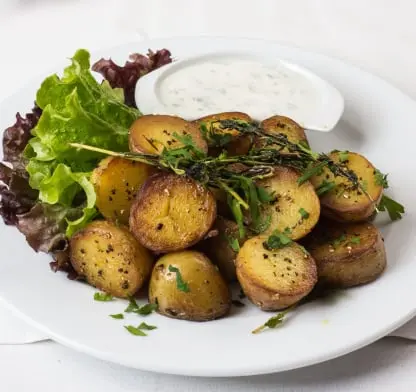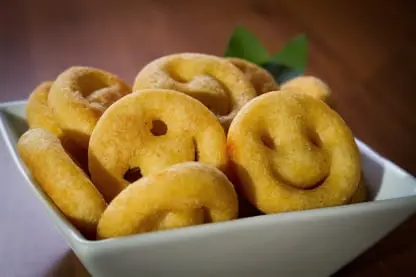Potato Food Safety app with AI potato Food safety:
Potato Food Safety app enforces easy QC with AI potato Food safety, manages your potato processing, storage, packing & value adding. Complete potato quality & business management app.

Potato Food Safetys during production
View app Specifications.
All potatoes contain natural toxins called glycoalkaloids. The levels are usually low but higher levels are found in potato sprouts, and the peel of potatoes that taste bitter. The toxins are produced by the plant in response to stress such as from micro-organisms and UV light, and damage such as bruising. The amount of toxin depends on the type of potato and the growing conditions.
Severe stomach ache and even death from glycoalkaloid poisoning has been reported overseas, but is very unusual. Glycoalkaloids are not destroyed by cooking, so it is important to avoid eating the sprouts and to remove any green or damaged parts before cooking. Do not eat cooked potatoes that still taste bitter. If you come across a green potato crisp, it’s probably best not to eat it. Remember to store potatoes in a dark, cool and dry place. See more about Natural toxins in food

Daily Potato packhouse hygiene checklist
U.S. potatoes offer unmatched quality, consistency and variety. From seed to harvest, the U.S. potato industry relies on experience and research to utilize the best production practices. The use of certified seed potatoes contributes to a healthier potato crop and helps farmers reduce their ecological impact. U.S. growers and certified agronomists take great care to monitor soil and crop needs. Technological tools such as computerized Global Positioning Systems (GPS) make sure the sensitive potato plants receive an optimum supply of moisture, nutrients, and air throughout the growing period. Harvested potatoes are USDA inspected and graded to conform to official requirements for their designated use.

Potato Food safety & management
USDA
Strict U.S. government oversight assures the safety and quality of U.S. potatoes from harvest to consumption. The United States Department of Agriculture (USDA) enforces standards through its Animal and Plant Health Inspection Service (APHIS), Agricultural Marketing Service (AMS) and State Departments of Agriculture (SDA).
U.S. SEED STANDARDS
USDA agencies collaborate to ensure that certified U.S. seed potatoes meet stringent federal standards. For seed that is being exported, they also enforce the U.S. Export Standards for Seed Potatoes. The USDA also certifies that plant materials shipped to international markets meet any additional phytosanitary entry requirements of the destination country.
U.S. FRESH POTATO STANDARDS
After harvest, U.S. potatoes are carefully inspected. The USDA enforces quality standards relating to potato size, shape, and defects. It issues a grade for each potato. Keeping the different grades of potatoes separate ensures that purchasers receive the type and quality of potatoes for which they have contracted.
U.S. PROCESSED POTATO STANDARDS
U.S. potatoes destined for processing are also sorted and graded under USDA oversight. To ensure safety, every U.S. potato processor is closely regulated and monitored by inspectors from the USDA and must meet the strict Hazard Analysis & Critical Control Points (HACCP) requirements of the U.S. Food and Drug Administration. For some frozen and canned potato products, U.S. processing companies must also comply with government product specifications. The U.S. is the only country in the world that has mandatory government specifications for the quality and length of frozen fries.
Potatoes USA

Potato Supplier Food Safety & management
In general, uncooked potatoes can last anywhere from 1 week to a few months. They’ll last longer if you keep them in a cool storage place, such as a pantry or root cellar, rather than at room temperature.
Potatoes were originally grown by native peoples of the Andes mountains in South America. Today, thousands of varieties are cultivated worldwide (1Trusted Source, 2Trusted Source, 3Trusted Source).
Though you may have noticed that potatoes tend to keep a long time, you may wonder precisely how long they last before spoiling.
This article tells you how long potatoes last — and how to tell whether they’re safe to eat.
Shelf life of potatoes
The length of time that potatoes stay fresh depends on several factors, including how they’re stored and whether they’ve been cooked.
In general, uncooked potatoes can last anywhere from 1 week to a few months. Cooler temperatures, such as those afforded by a pantry or root cellar, allow them to keep longer than at room temperature.